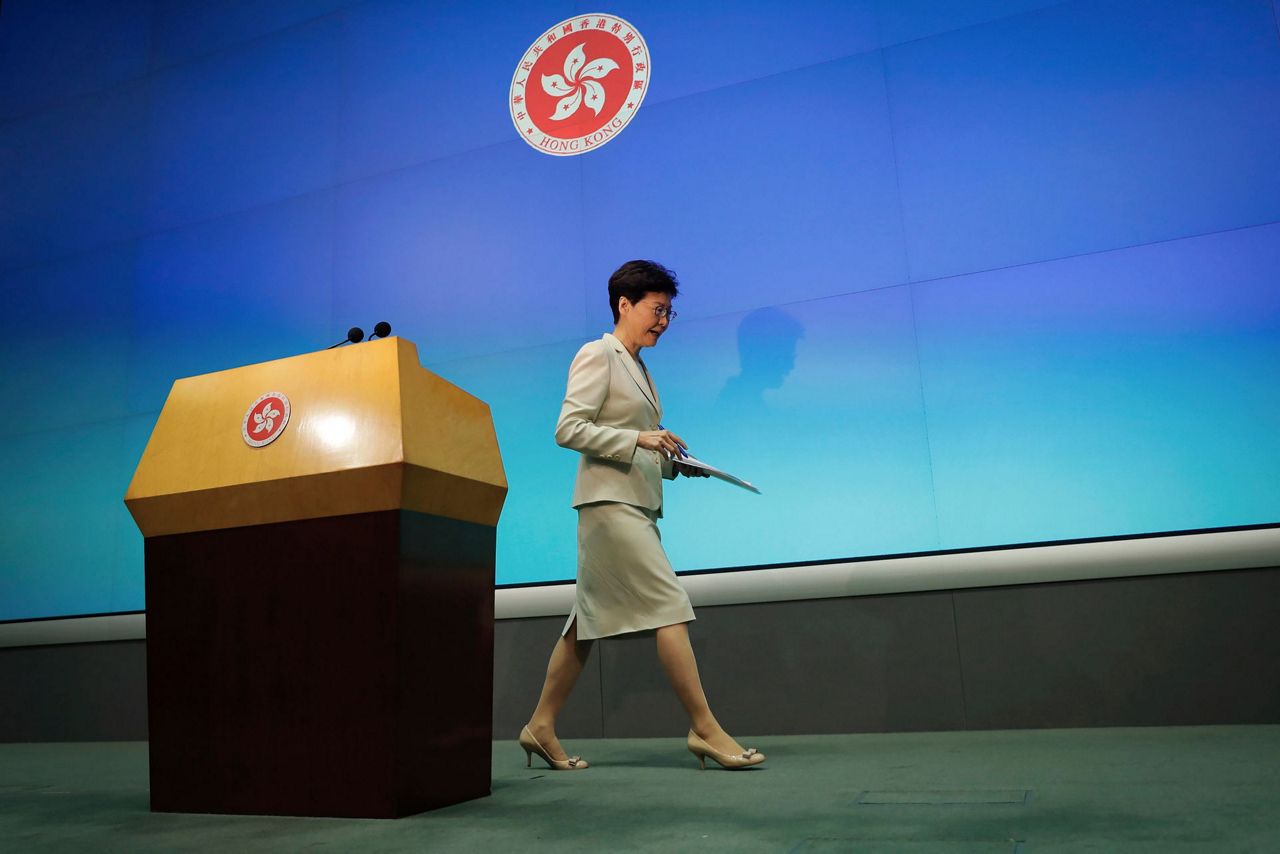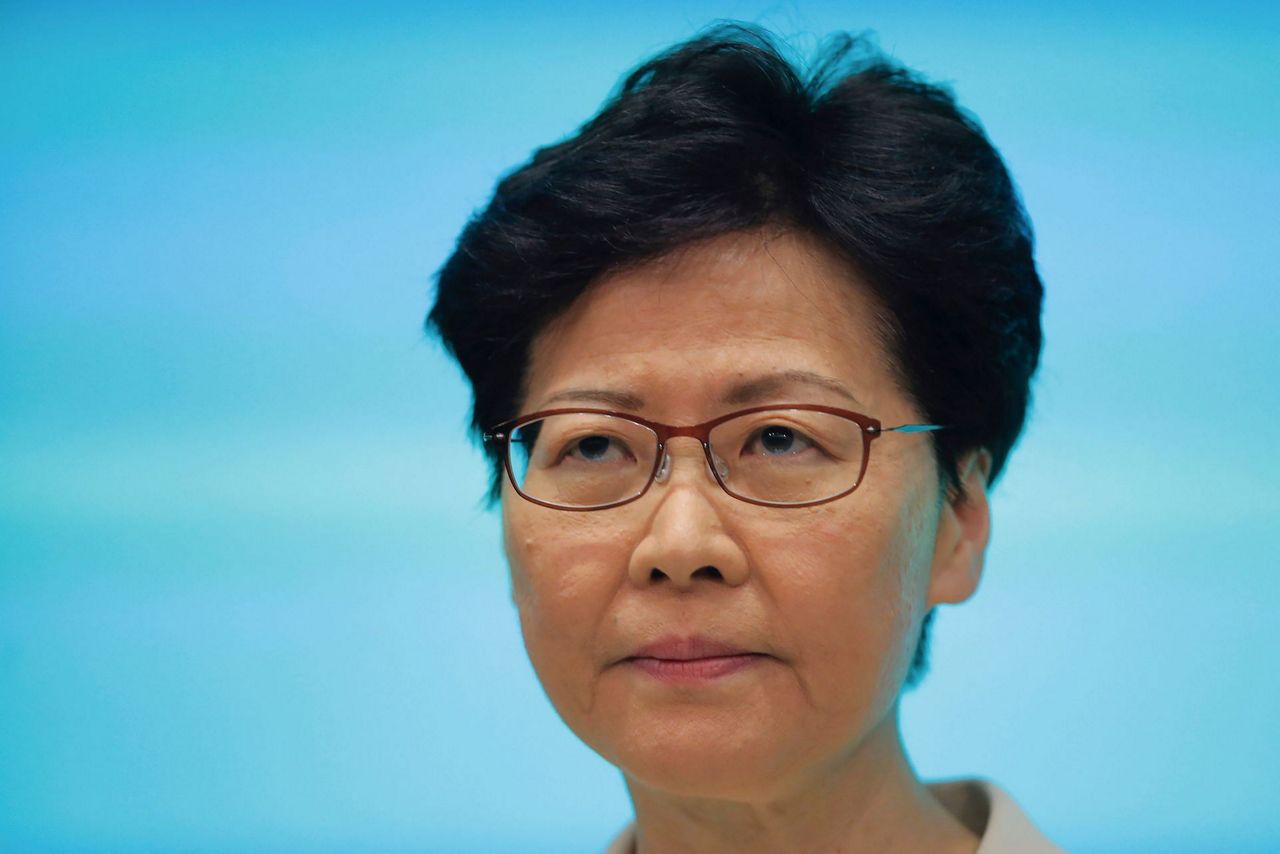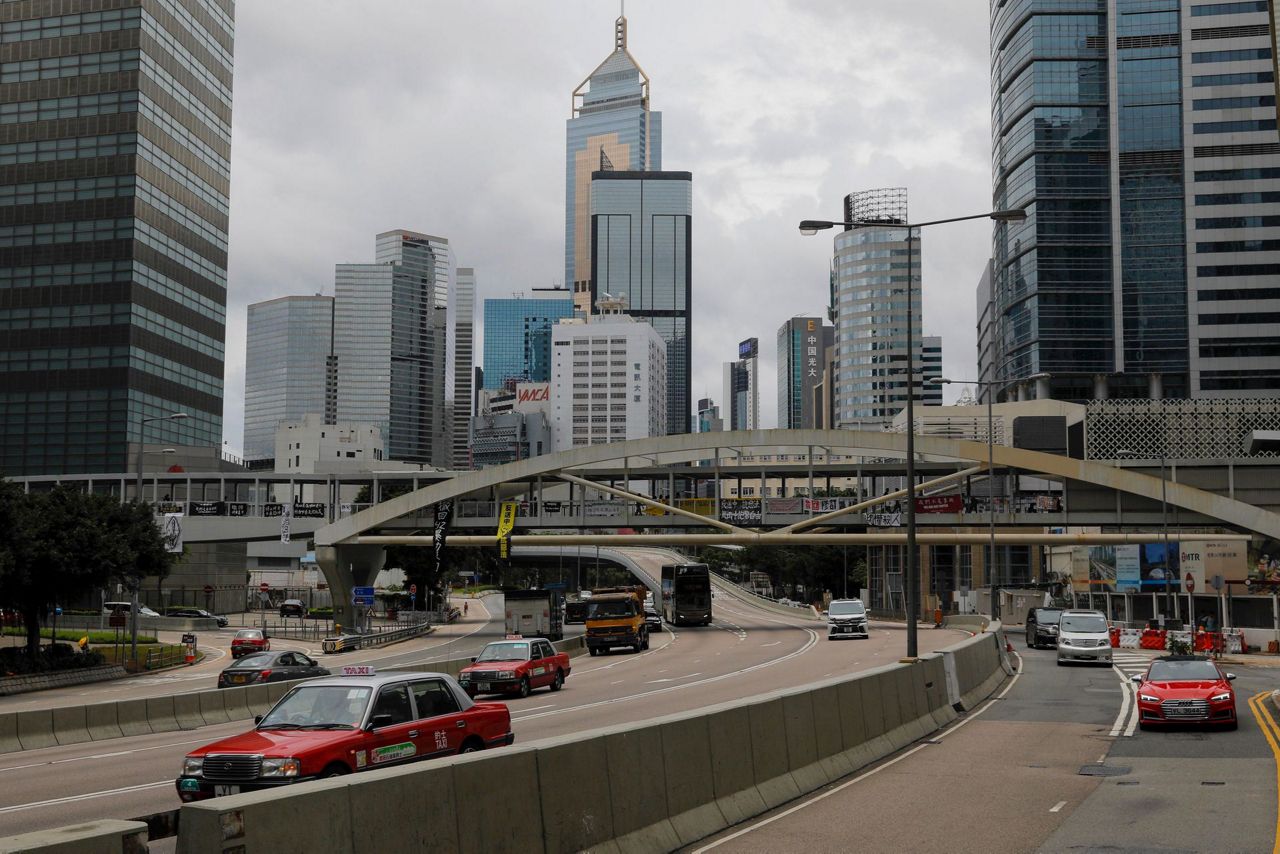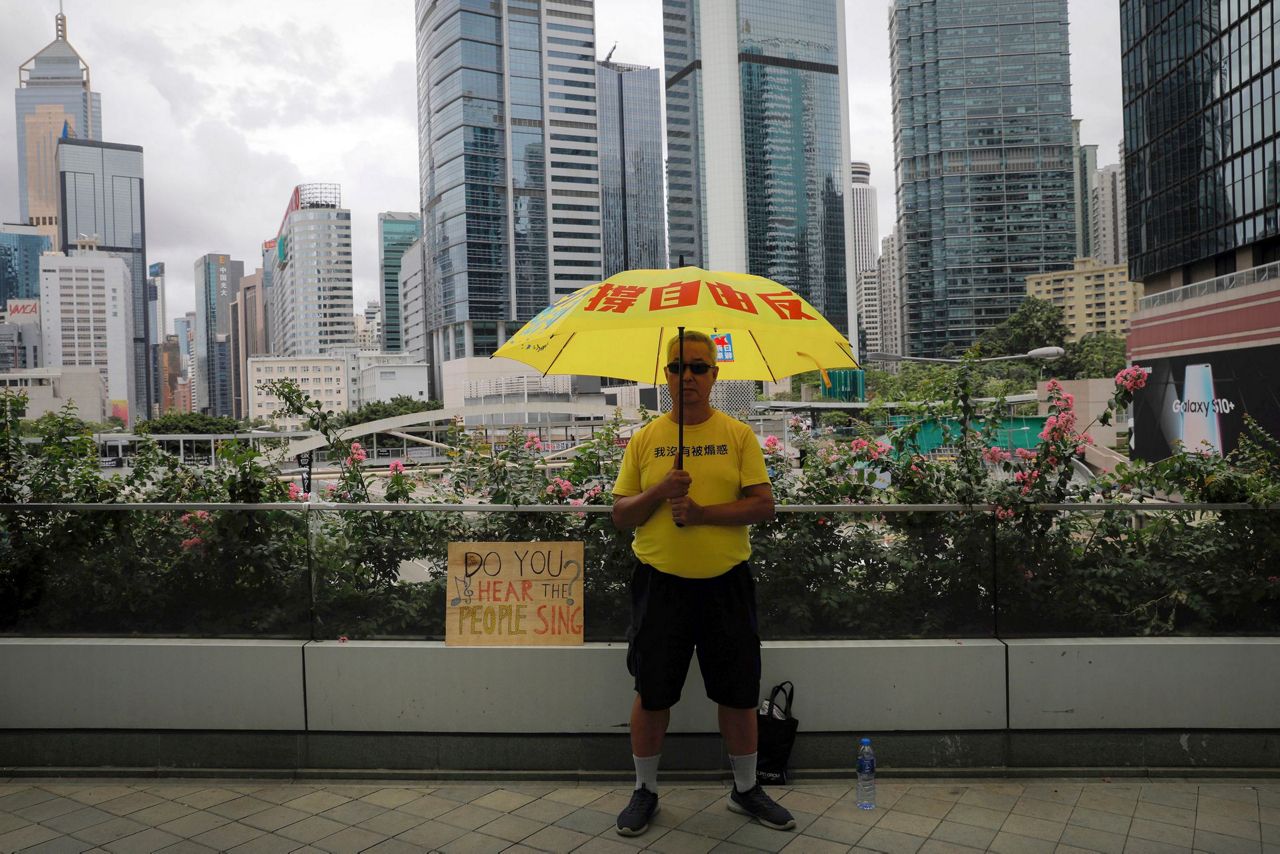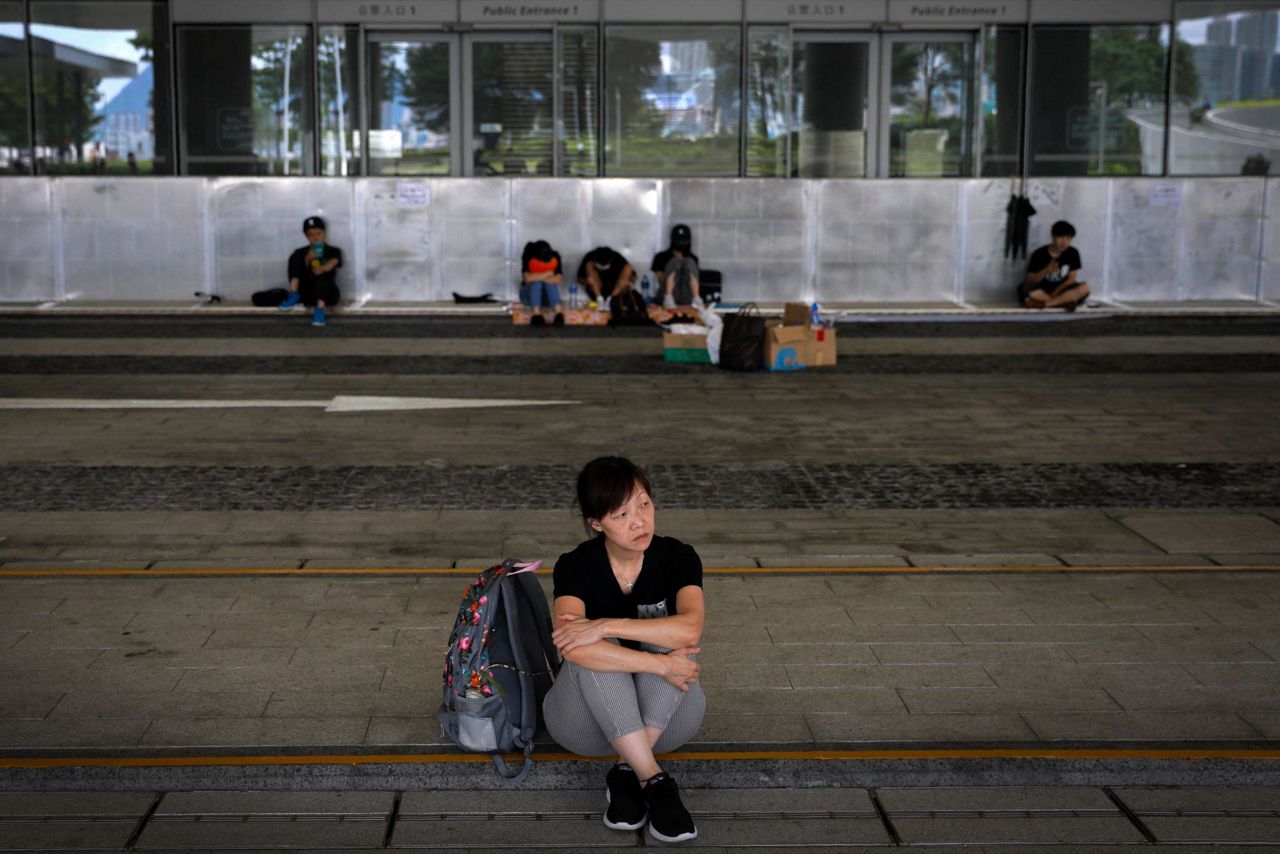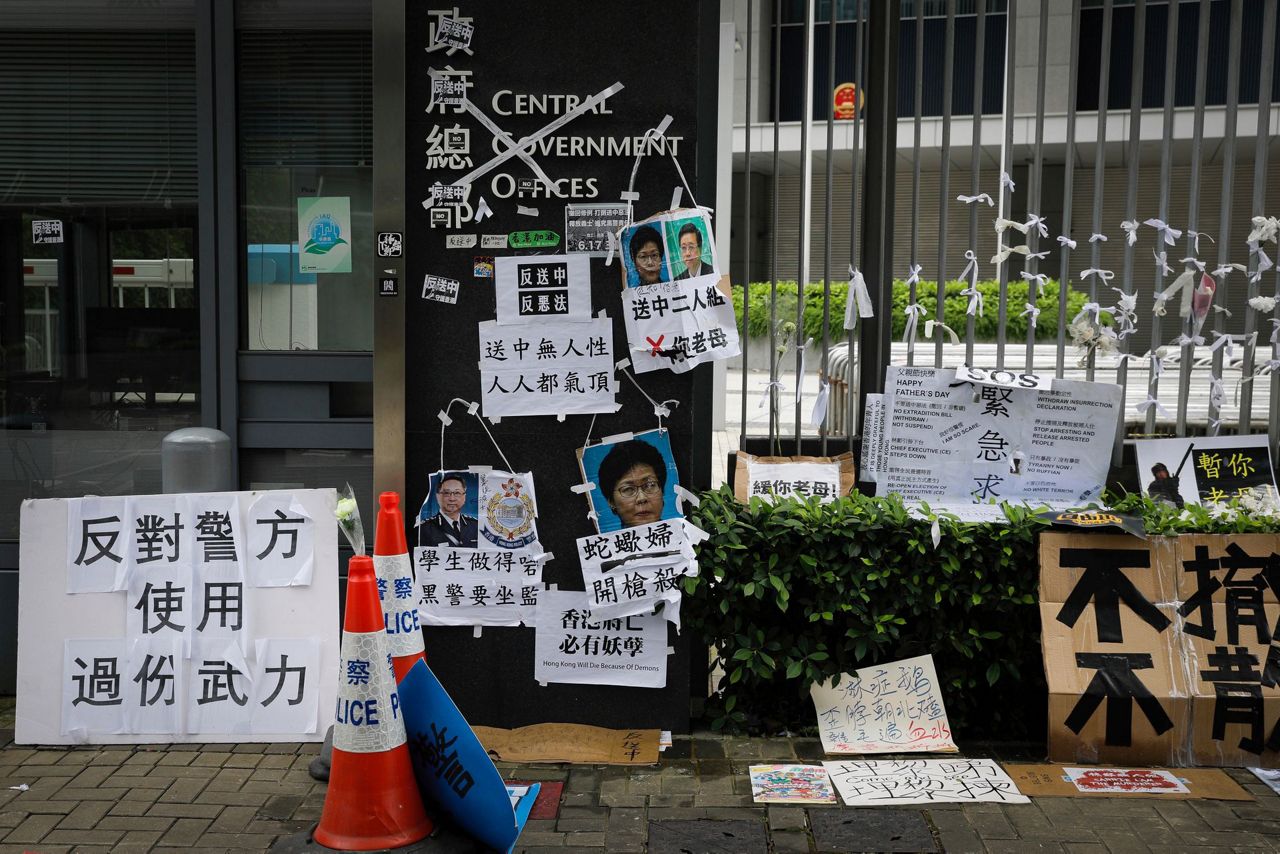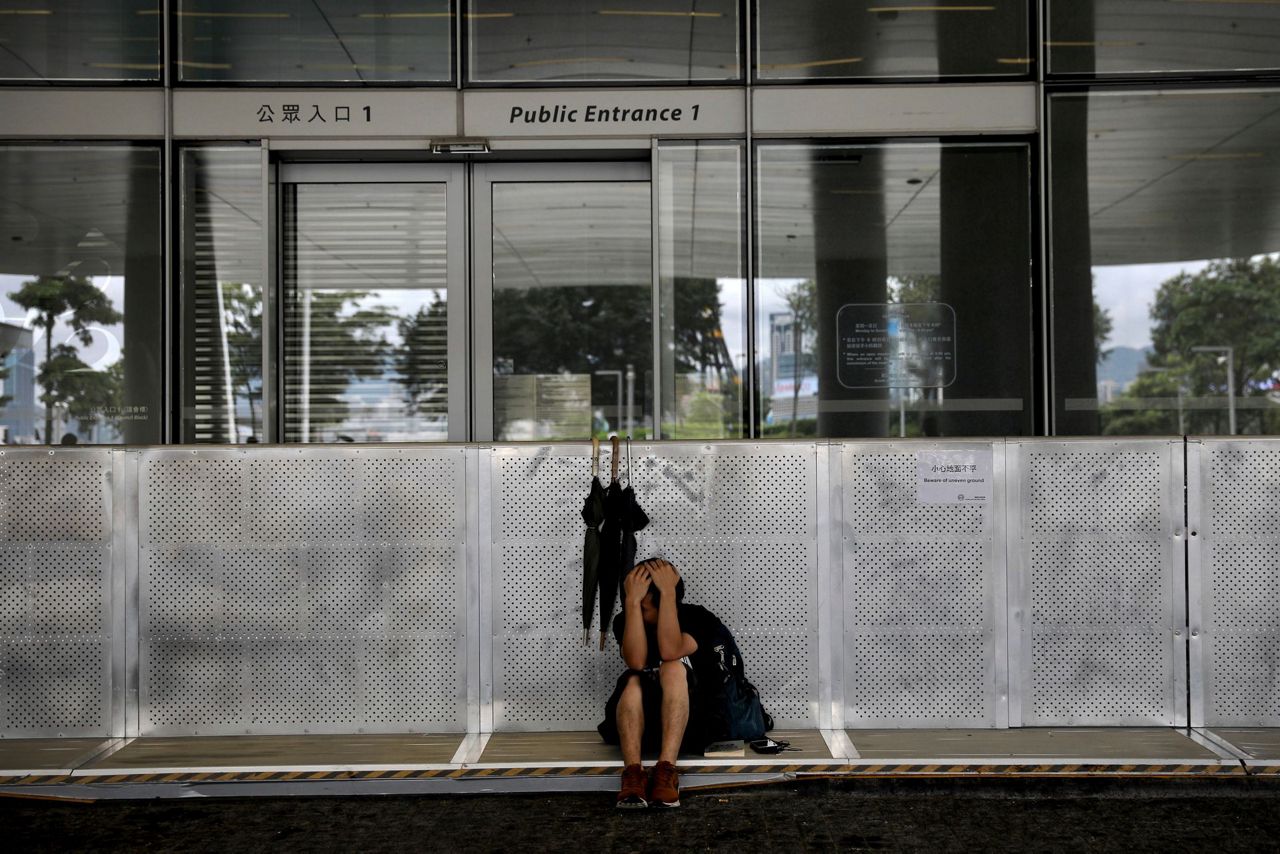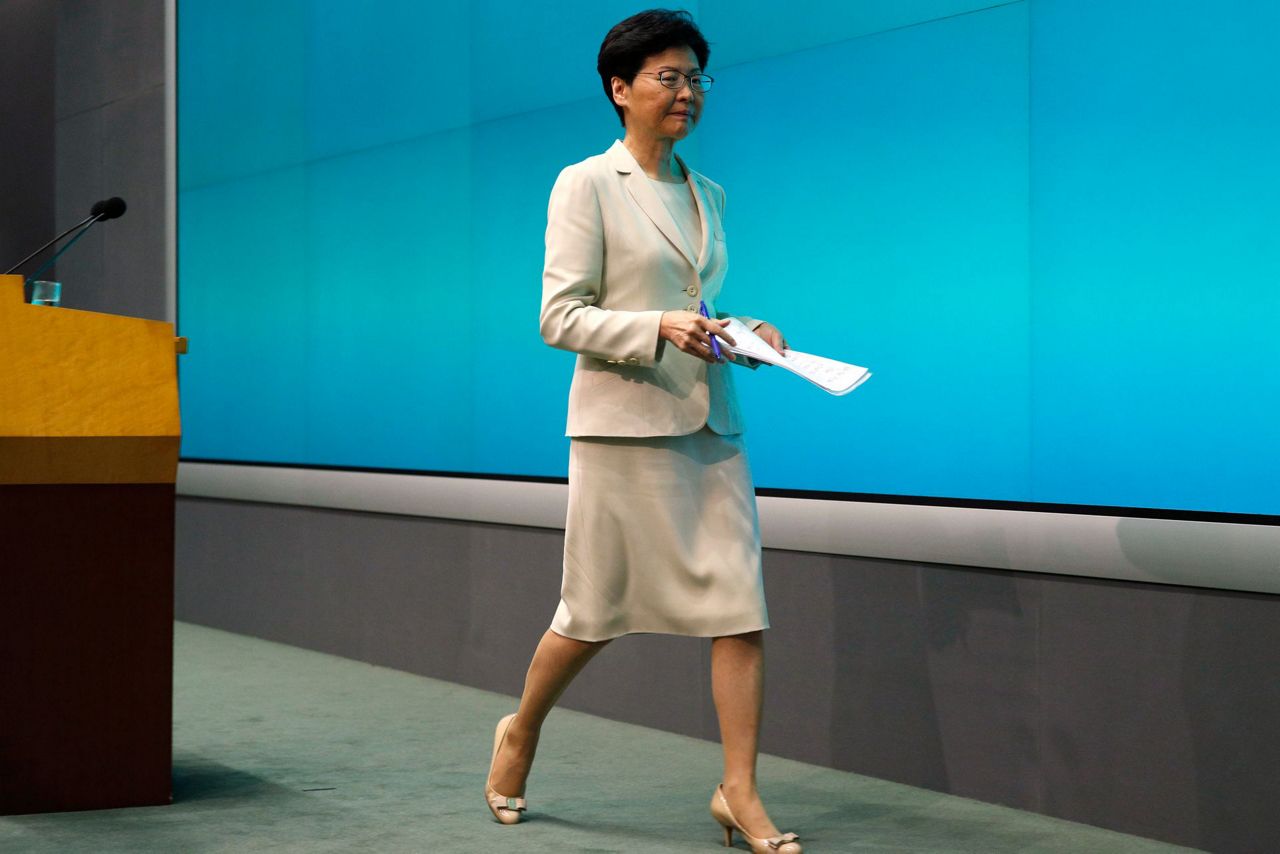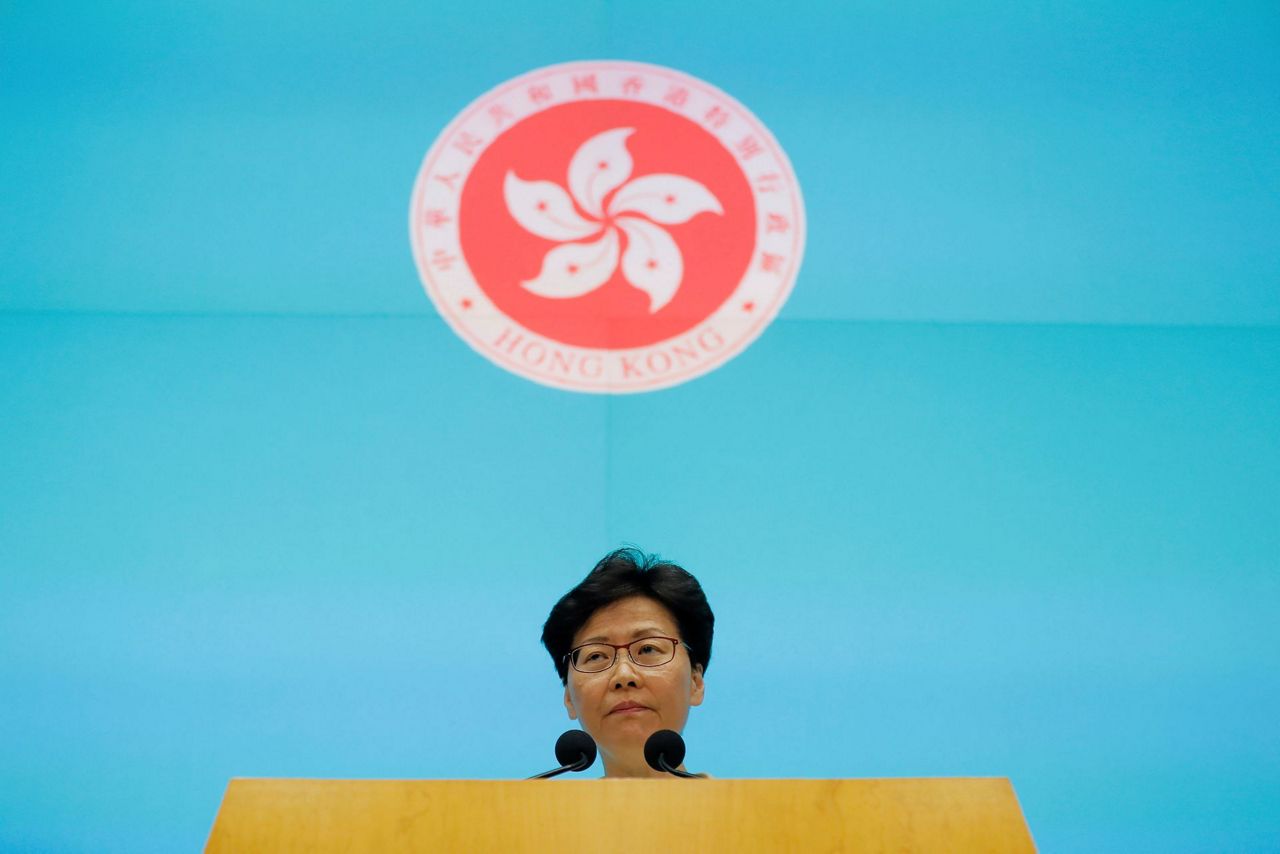HONG KONG (AP) — Hong Kong pro-democracy lawmakers and activists rejected a new apology Tuesday by the city's leader over a highly unpopular extradition bill, demanding that she quit and that the legislation be scrapped completely.
Lam's plea for "another chance" drew a chorus of criticism, though members of pro-Beijing political parties and her Cabinet, the Executive Council, expressed their support.
Some activists said if the government does not meet those and other demands by a 5 p.m. Thursday deadline, they plan a mass "resistance movement." That would follow a peaceful but rousing march Sunday by some 2 million people worried that the legislation would further compromise the dwindling autonomy of the former British colony.
Asked repeatedly for a reassurance that she was dropping the bill that would allow some Hong Kong suspects to be tried in mainland Chinese courts, Beijing-appointed Lam would only say she would not revive it without certainty of its acceptance.
"In recognition of the anxiety and fears caused by the bill in the last few months, if we don't have confidence from the people we will not proceed with the legislative exercise again," Lam said.
"I will not proceed with this legislative exercise if these fears and anxieties could not be adequately addressed," she said.
The latest round of protests behind them, Hong Kong legislators were due to meet Wednesday. A proposed vote of no confidence by pro-democracy lawmakers was on the agenda, but they are outnumbered by pro-Beijing members. Officials were also due to be asked about complaints of police brutality against some protesters.
Claudia Mo, a pro-democracy member of the city's Legislative Council, called Lam's appearance before news media Tuesday "completely unacceptable."
"She refused to address the demands of the entire Hong Kong community," Mo said, noting that Lam herself admitted that the remaining three years of her term would likely be "very, very difficult."
Mo said "we will fight on as usual within and without the legislature for Hong Kong's true democracy campaign."
"Not only is this apology not sincere, it is fake. We need to point out that Carrie Lam has created a governing crisis," said Joshua Wong, a dissident who joined the protests Monday after his release from a 1-month prison term related to his involvement in demonstrations in 2014.
Wong said that while he was behind bars some prison staff, who are government civil servants, told him that they had joined recent protest rallies.
Many in Hong Kong fear a further weakening of the territory's legal autonomy at a time when Communist-ruled China is growing increasingly authoritarian.
Samson Yuen, a professor at Hong Kong's Lingnan University, said the extradition bill is like a "knife at the throat" for many in Hong Kong.
"There's a lot of energy, emotion and passion and also anger," he said in an interview. "It's a total mobilization of society. "
The bill has ignited several large protests, including the huge march on Sunday and another of as many as 1 million people a week earlier.
Police used tear gas, steel batons and rubber bullets to subdue protesters during scuffles outside the government headquarters last Wednesday. Some protesters staged "resistance" efforts in a nearby subway station. It's unclear how much patience the majority of Hong Kong residents would have for more such disruptions.
The protesters have also demanded apologies for forceful tactics used by police and reassurances that those involved in the earlier protests would not be charged with "rioting," which can carry a jail sentence of up to 10 years. Lam earlier characterized the clashes as riots.
On Monday, the city's police commissioner sought to reassure the public that only those who resorted to violence or other serious offenses would be prosecuted. He said just five of more than 30 people arrested were facing such charges.
Lam said she was in accord with the commissioner, and those who committed crimes had to face legal consequences. She said any complaints about police behavior should be referred to a government agency in charge of handling such problems.
The uproar over the extradition bill has highlighted worries that Hong Kong is losing the special autonomous status China promised it when it took control from Britain in 1997.
Scenes at the protests were similar to demonstrations in 2014, when people camped for weeks in the streets demanding direct elections of the city's chief executive, who is chosen by a pro-Beijing committee.
One concern is that the law might be used to send critics of Communist Party rule to the mainland to face vague political charges, possible torture and unfair trials.
Lam has insisted the legislation is needed for Hong Kong to uphold justice and not become a magnet for fugitives. It would expand the scope of criminal suspect transfers to include Taiwan, Macau and mainland China.
So far, China has been excluded from Hong Kong's extradition agreements because of concerns over the independence of its courts and its human rights record.
The vast majority of Hong Kong residents fled persecution, political chaos or poverty and famine on the Chinese mainland. They value stability and but also cherish freedoms of dissent and legal protections not allowed for people on the mainland.
___
Associated Press journalists Tassanee Vejpongsa, Nadia Lam, Borg Wong and Alice Fung in Hong Kong and Kelvin Chan and Olivia Chan in London contributed to this report.
Copyright 2019 The Associated Press. All rights reserved. This material may not be published, broadcast, rewritten or redistributed.



